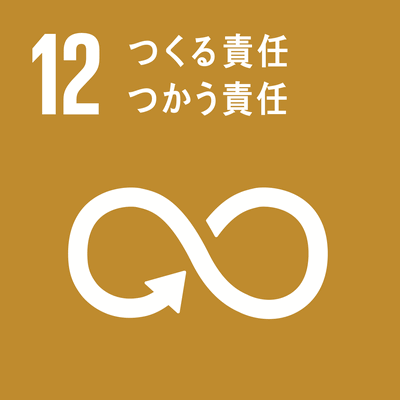シラバス表示
シラバスの詳細な内容を表示します。
→ 閉じる(シラバスの一覧にもどる)
科目の基本情報
| 開講年度 | 2024 年度 | |
|---|---|---|
| 開講区分 | 工学研究科(博士前期課程)機械工学専攻 | |
| 領域 | 主領域 : D; 副領域 : F | |
| 受講対象学生 |
大学院(修士課程・博士前期課程・専門職学位課程) : 1年次, 2年次 |
|
| 選択・必修 | ||
| 授業科目名 | バイオメカニクス特論 | |
| ばいおめかにくすとくろん | ||
| Biomechanics | ||
| 単位数 | 1 単位 | |
| ナンバリングコード | EN-SYST-5
|
|
| 開放科目 | 非開放科目 | |
| 開講学期 |
後期 |
|
| 開講時間 |
水曜日 9時限 |
|
| 授業形態 |
対面授業 * 状況により変更される可能性があるので定期的に確認して下さい
「オンライン授業」・・・オンライン会議ツール等を利用して実施する同時双方向型の授業 |
|
| 開講場所 | ||
| 担当教員 | 稲葉 忠司(工学研究科機械工学専攻) | |
| INABA, Tadashi | ||
| SDGsの目標 |
|
|
| 連絡事項 | * 状況により変更される可能性があるので定期的に確認して下さい |
|
学修の目的と方法
| 授業の概要 | バイオメカニクスとは,生体の分子,細胞,組織,器官の機能と構造,およびその維持・制御の機構を力学的観点から解析するとともに,得られた知見を医学における診断,治療,予防や,工学における材料や構造の設計などに応用することを目的とする学問領域である.本授業では,バイオメカニクス領域に属する種々の研究課題のトピックスを一話完結型で紹介する. Course description Biomechanics seeks to understand the mechanics of living systems. It is an ancient subject and covers a very wide territory. In this course we concentrate on physiological and medical applications, which constitute the majority of recent work in this field. The motivation for research in this area comes from the realization that physiology can no more be understood without biomechanics. For an organ, biomechanics helps us to understand its normal function, predict change due to alterations, and propose methods of artificial intervention. Thus diagnosis, surgery, and prosthesis are closely associated with biomechanics. |
|---|---|
| 学修の目的 | 生体器官に関して,その正常な機能の理解,疾患・損傷などによる機能変化の予測,および人工的な介入方法の提案などを行う上で,力学的観点からのアプローチが有用・重要であることを理解するとともに,解析・評価手法に関する知識を得ることを目的とする. Learning objectives The knowledge which contributes to analysis and evaluation of living systems from mechanical point of view in order to understand its normal function, predict change due to alterations, and propose methods of artificial intervention is obtained. |
| 学修の到達目標 | 例えば,「心筋壁の変形挙動解析」や「脊椎の剛性評価」といった研究課題に関して,力学的観点から解析・評価することの有用性・重要性について理解できるようになることを目標とする. Achievement The targets of this course are to understand the usefulness and importance of biomechanical analysis such as the study on heart wall motion analysis or spinal motion analysis. |
| ディプロマ・ポリシー |
|
| 成績評価方法と基準 | 演習課題 |
| 授業の方法 | 講義 |
| 授業の特徴 | |
| 授業アンケート結果を受けての改善点 | |
| 教科書 | |
| 参考書 | 適宜紹介する. |
| オフィスアワー | 水曜日18:00~19:00に,機械棟4階稲葉教員室にて対応.電子メールによる受け付け可. |
| 受講要件 | 特になし. |
| 予め履修が望ましい科目 | |
| 発展科目 | 本講義に関連する科目として固体力学特論・演習,連続体力学特論,生体材料工学特論・演習などがある. |
| その他 |
英語対応授業である。 ただし,非常勤講師による授業の際は,日本語のみでの対応となる. |
授業計画
| MoodleのコースURL |
|---|
| キーワード | バイオメカニクス(生体力学),心臓,脊椎,身体運動,医用機械,医用機器,医用計測,画像診断,計算バイオメカニクス |
|---|---|
| Key Word(s) | Biomechanics,Heart,Spine,Physical exercise,Medical machine,Medical equipment,Medical measurement,Medical diagnostic imaging,Computational biomechanics |
| 学修内容 | 第1回 序論(バイオメカニクスとは) Introduction 第2回 生体システムの力学的機能・評価(循環器系) ―心筋壁運動の計測・解析― Mechanical evaluation of heart wall motion using magnetic resonance imaging 第3回 生体システムの力学的機能・評価(筋骨格系) ―脊椎のバイオメカニクス― Mechanical evaluation of spinal deformation using 6-axis material testing machine 第4回 生体システムの力学的機能・評価(身体運動) ―体幹機能と移動動作・転倒に関する研究― Mechanical evaluation of trunk muscle force during slipping motion 第5回 医用機械・医用計測 Ⅰ ―医用画像診断装置の進歩とその応用― Progress of medical imaging apparatus and its application 第6回 医用機械・医用計測 Ⅱ ―臨床現場における工学の役割― Role of engineering in medical setting 第8回 コンピューテーショナル・バイオメカニクス Computational biomechanics |
| 事前・事後学修の内容 | 事後学修:当日の講義の内容について,その背景や目的,および関連する研究・開発の状況について調査し,レポートを作成する. |
| 事前学修の時間: 事後学修の時間:150分/回 |

